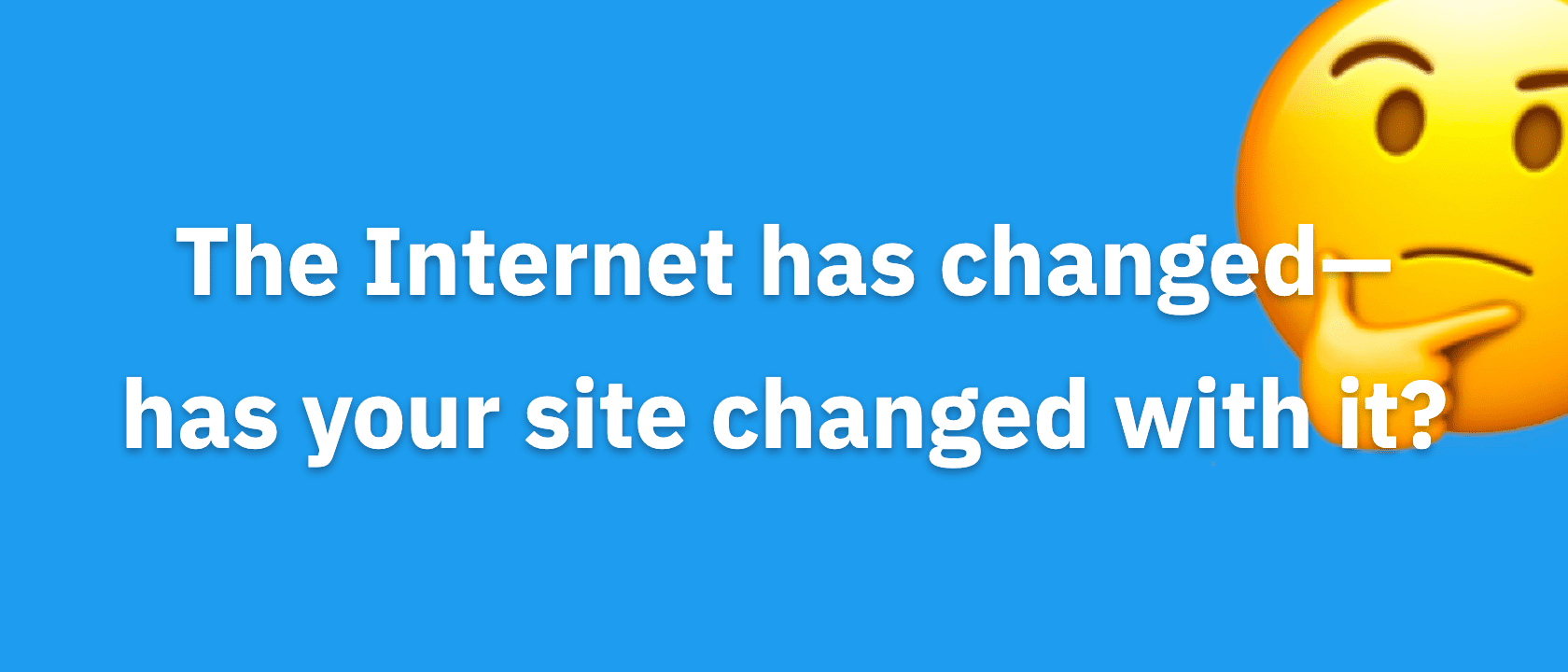By now, you probably know what it takes to make a website that loads fast.
We’ve taught you many methods on how to do that before.
You know, things like caching plugins, optimized images, CSS sprites, CDNs, etc. all contribute to a faster loading website.
But you may be missing out on the most important, most vital part of optimizing a website for speed…
The “I Can Optimize That More” Mindset
The truth is, there’s more to building a faster website than just installing a cache plugin and a CDN.
That stuff is great, but the most important thing you need to understand about page optimization is this:
It’s a work in progress. It’s always a work in progress.
As an online business owner, you are always making changes to your website. In the form of a new blog post, theme, plugin, or even a new feature your designer coded in. The fact is your website is always changing and new additions are being made.
Simply put, the more you add to your website, the more work you need to do to make sure it doesn’t affect the amount of time it takes to load a page.
That’s why we don’t recommend you use too many plugins on your site. Many load extra, oftentimes unnecessary queries, JavaScript, CSS and images throughout your site, which can have a drastic affect on your site’s performance.
Likewise, that’s why we recommend using Thesis, as it comes optimized for performance right out of the box (I couldn’t help myself ;)).
While it does take extra work to keep a site optimized (always compressing images, ensuring good code, etc.), the benefits of having a fast site are clear:
- Google will rank you higher in the search rankings, and will penalize slower loading sites.
- The less resources your server uses per visitor, the less you have to worry about crashes/price spikes.
- Your conversion rates will be up, as people who don’t have to wait are more inclined to do something on your site.
It pays to have a fast website.
How to Develop the Optimization Mindset
Like I said, it takes a little extra work to keep an optimized site, well, optimized. It’s far too easy to add bloat to our websites, with so many plugins and script libraries at our disposal.
And like anything else you do for your business, consistency is key. So how can you teach yourself to develop this mindset and stay with it? I have 2 vital tips for you:
#1: Set aside an hour a week
Every Sunday night, when I’m cooling down from the previous week and getting ready for the next, I spend around an hour or two “cleaning up” my website.
I clean up some of my theme’s code, compress and reupload images, clean out/optimize my database, etc.
All of these things are pretty “mindless” and truly don’t take much thought to do (just be careful with your code). That’s why I do it on Sundays, as I’m not the most functional person on this day.
If you set aside just an hour a week to go through and “clean out” your website, you can start to experience the differences.
Not only can you enjoy quicker page loading times, but you can take pride in the fact your website is a lean, clean, loading machine. 😉
#2: Learn What You’re Actually Doing
Here’s a classic question remixed a little bit for those of you who hang on the word of every “expert” out there:
If you were to jump off a cliff to get a faster website, would you?
When you go to install something like a cache plugin or a CDN, do you actually know what those things do when you add them to your site? Or, do you just install them because somebody told you to?
I sell Thesis skins, and help people with them on my support forums. Most of them have a cache plugin installed, but don’t understand what it really does. They just know it “makes their website faster.”
To keep it simple: each time somebody visits a page on your site, a “trip” to the database is taken and a bunch of tasks are run in order to make the page load. All of this takes time, and adds seconds to your overall page loading time (that’s bad).
What a cache plugin does is basically takes a picture of your website and saves it, then serves that saved, more compressed page to whoever is loading your website. No extra database calls or anything.
And this is where the problem lies for so many of my users:
If they try to make any changes to their site with a cache plugin enabled (such as editing code in their theme or adding a new plugin), the changes don’t show up on their website.
Why? Well, the cache is simply outdated and needs to be “resaved” in order to show these new changes that weren’t there when the cache was saved the first time. Or, in more familiar terms, they need to “clear their cache.”
When it comes to page optimization, you need to truly understand the concepts of what you’re doing. The example I gave you about caching is very basic, yet many people don’t know that’s what is really going on. They just know caching will supposedly make their site faster.
Understanding what you’ve done to optimize your website is just as important as actually having an optimized site in the first place. The more control you give yourself by learning how to use these tools, the more sustainable it will be for you to keep your website fresh.
